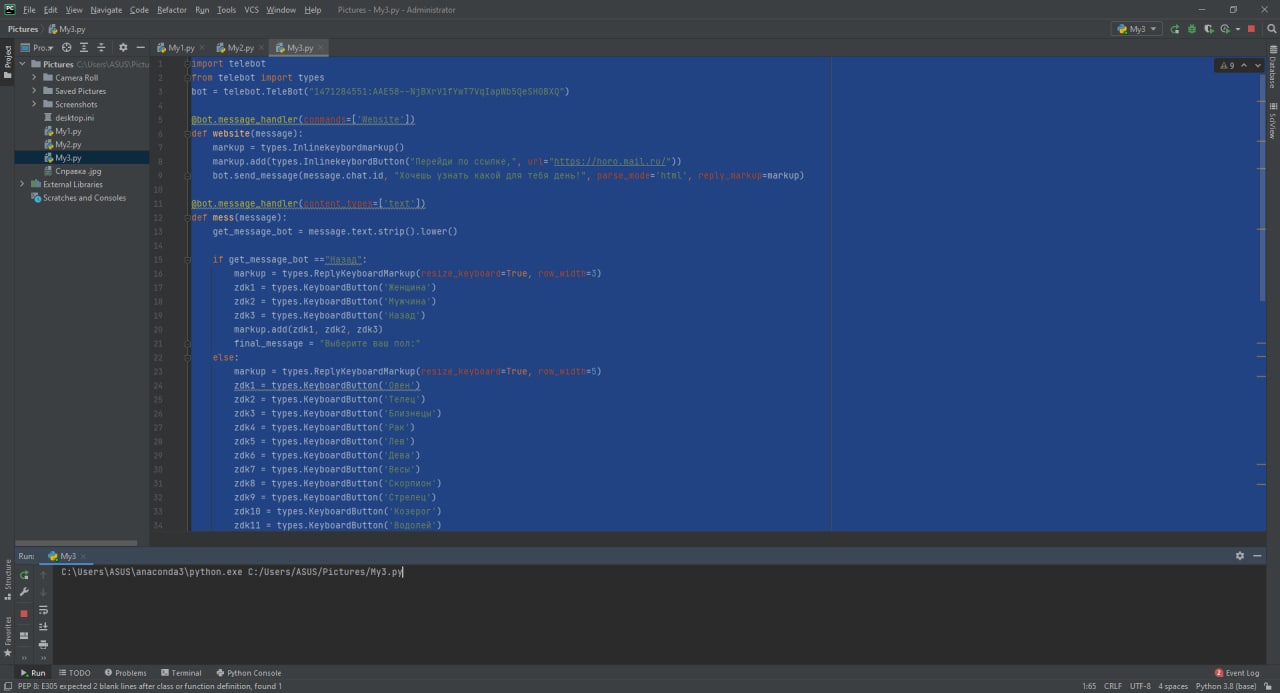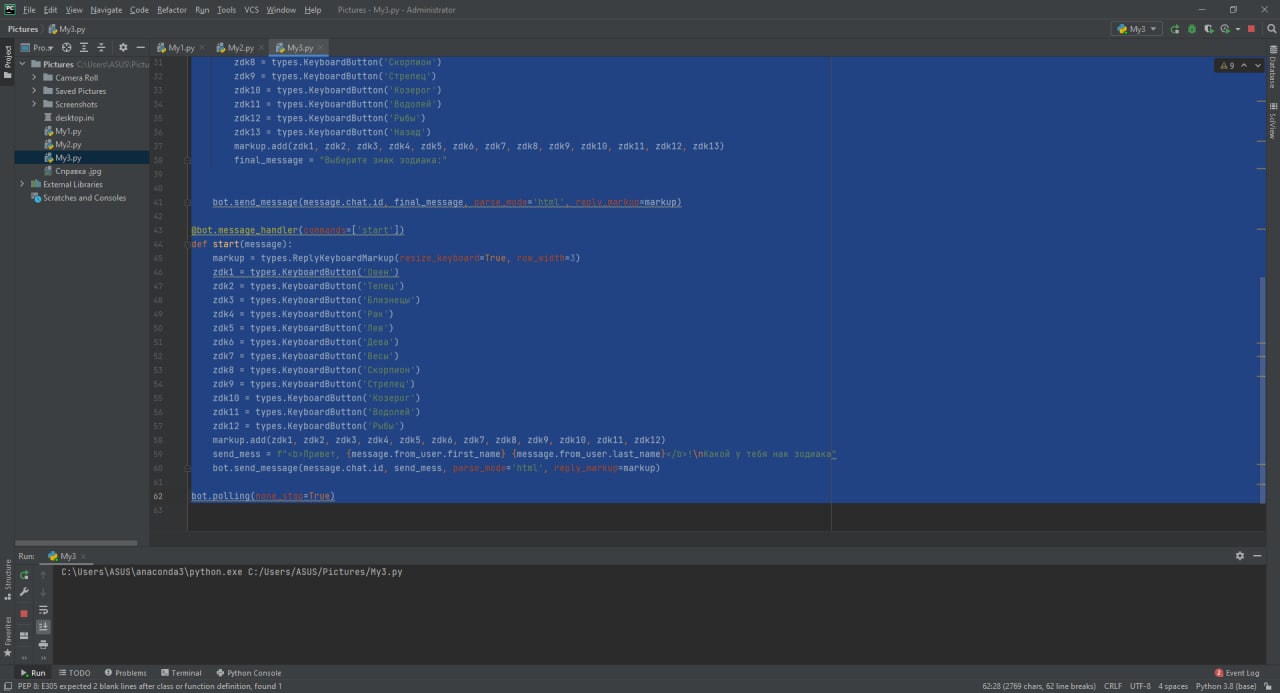O
for i in range(1,3):
print(i)
Size: a a a
O
👑️
ᅠ
py3
print(range.__doc__)
range(stop) -> range object
range(start, stop[, step]) -> range object
Return an object that produces a sequence of integers from start (inclusive)
to stop (exclusive) by step. range(i, j) produces i, i+1, i+2, ..., j-1.
start defaults to 0, and stop is omitted! range(4) produces 0, 1, 2, 3.
These are exactly the valid indices for a list of 4 elements.
When step is given, it specifies the increment (or decrement).
👑️
👑️
O
O
K
O
py3
print(range.__doc__)
range(stop) -> range object
range(start, stop[, step]) -> range object
Return an object that produces a sequence of integers from start (inclusive)
to stop (exclusive) by step. range(i, j) produces i, i+1, i+2, ..., j-1.
start defaults to 0, and stop is omitted! range(4) produces 0, 1, 2, 3.
These are exactly the valid indices for a list of 4 elements.
When step is given, it specifies the increment (or decrement).
K
БГ
a = '2020/12/11/1:46:00'
tn=datetime.now()
tb = datetime.strptime(a,'%Y/%m/%d/%H:%M:%S')
print((tn - tb).seconds)
БГ
D
БГ
D
print((tn - tb).seconds)
D
БГ
D
НЖ

НЖ
